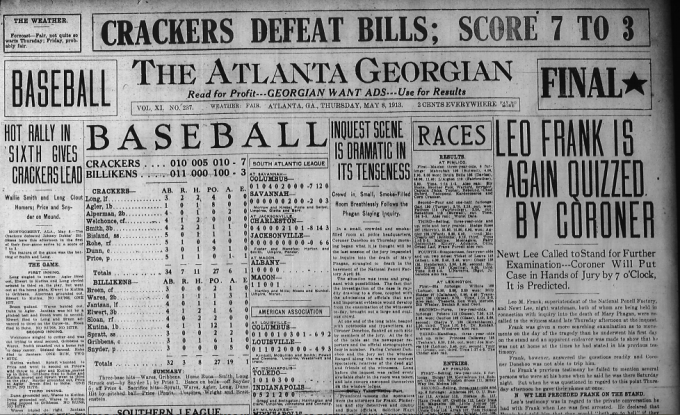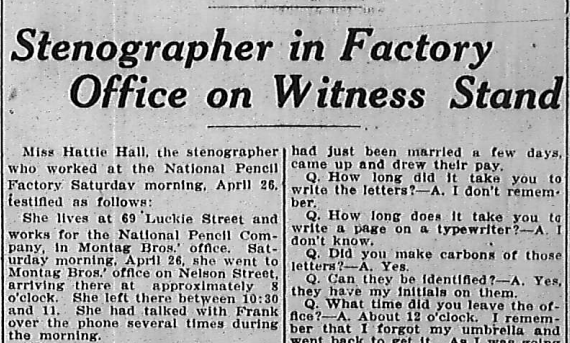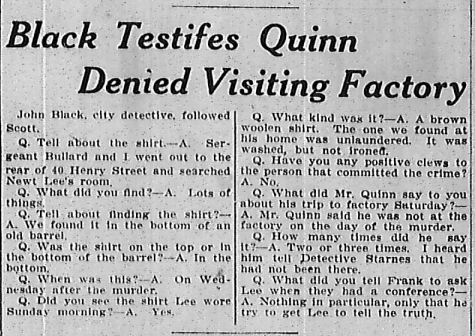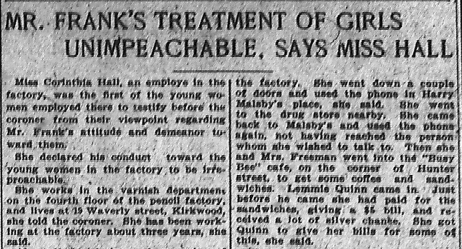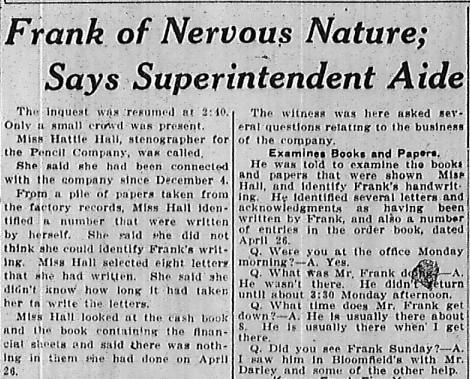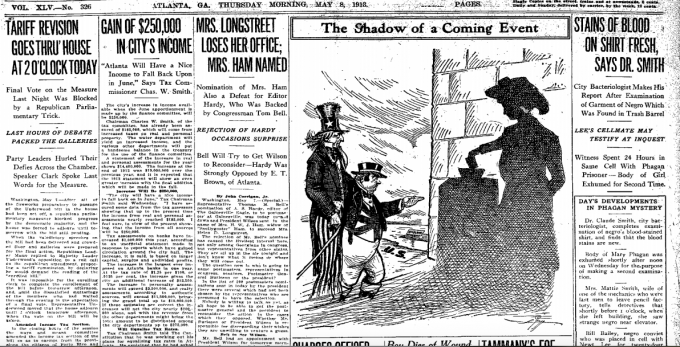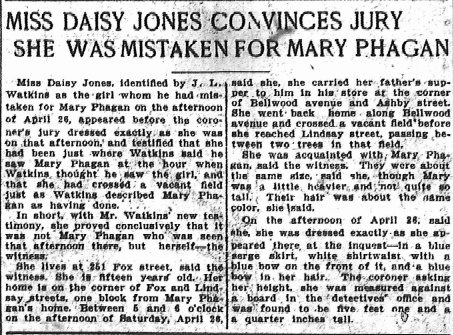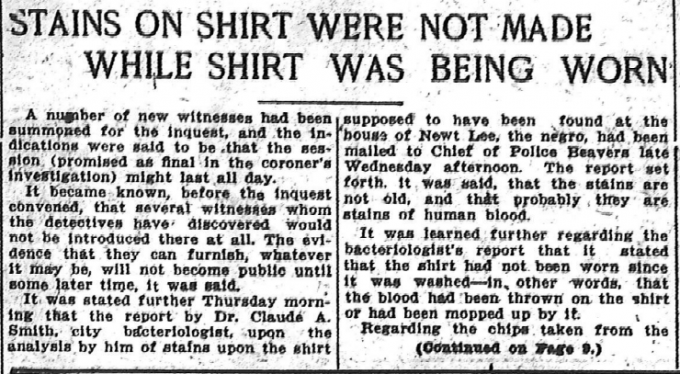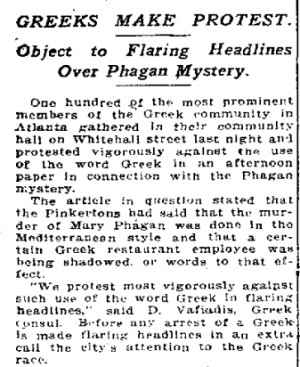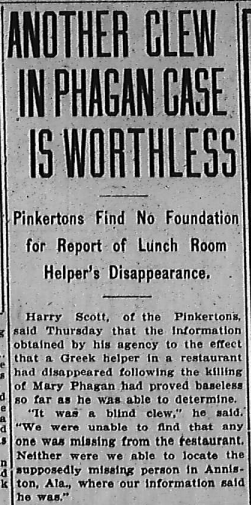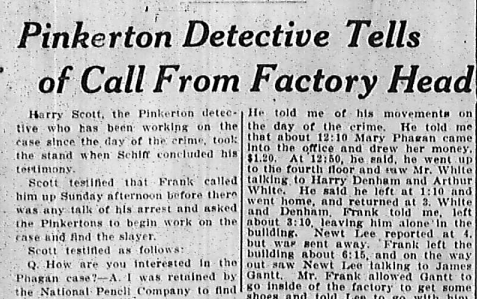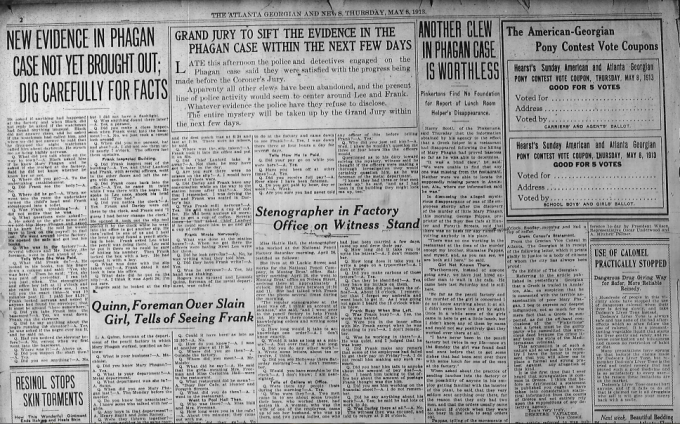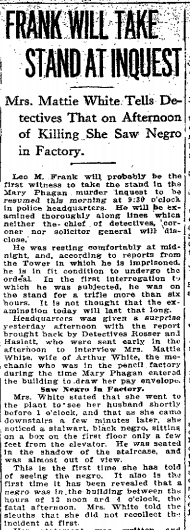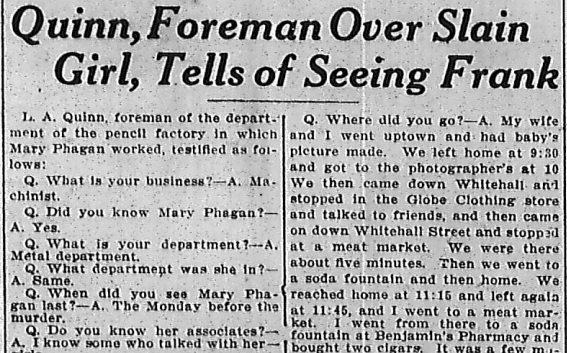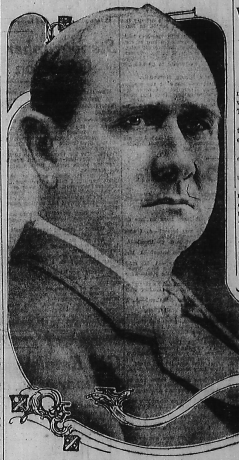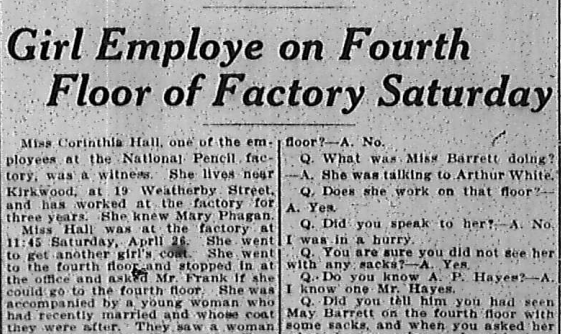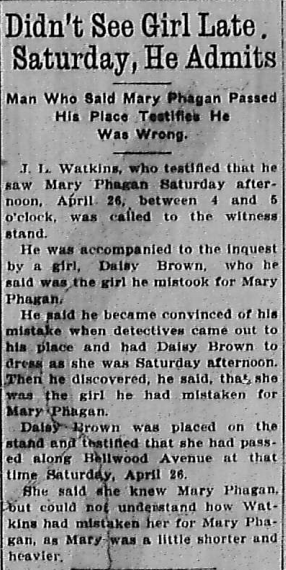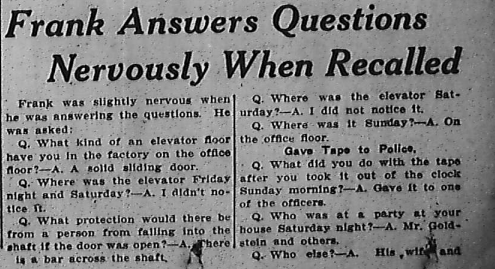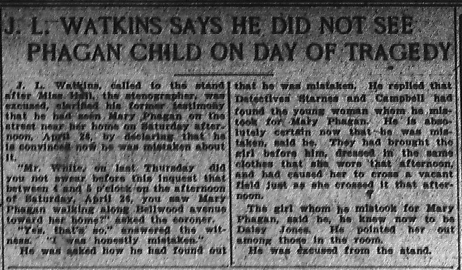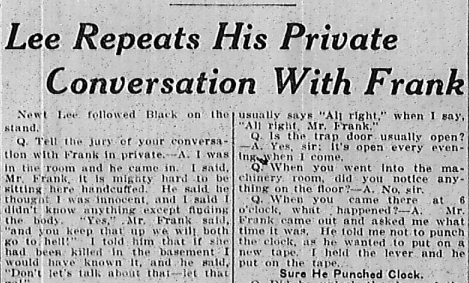Another in our series of new transcriptions of contemporary articles on the Leo Frank case.
Atlanta Georgian
Thursday, May 8th, 1913
Newt Lee Called to Stand for Further Examination—Coroner Will Put Case in Hands of Jury by 7 o’clock, It is Predicted.
Leo M. Frank, superintendent of the National Pencil Factory, and Newt Lee, night watchman, both of whom are being held in connection with inquiry into the death of Mary Phagan, were recalled to the witness stand late Thursday afternoon at the inquest.
Frank was given a more searching examination as to movements on the day of the tragedy than he underwent his first day on the stand and an apparent endeavor was made to show that he was not at home at the times he had stated in his previous testimony.
Frank, however, answered the questions readily and Coroner Donehoo was not able to trip him.
In Frank’s previous testimony he failed to mention several persons who were at his home when he said he was there Saturday night. But when he was questioned in regard to this point Thursday afternoon he gave their names at once.
NEWT LEE PRECEDED FRANK ON THE STAND.
Lee’s testimony was in regard to the private conversation he had with Frank when Lee was first arrested. He declared that Frank had told him that they would “both go to hell” if they were not careful, but the effect of this testimony was largely nullified by Frank’s earlier statement that the remark or a remark to the same effect was suggested by one of the detectives in the hope of getting some information from the night watchman. Continue Reading →

